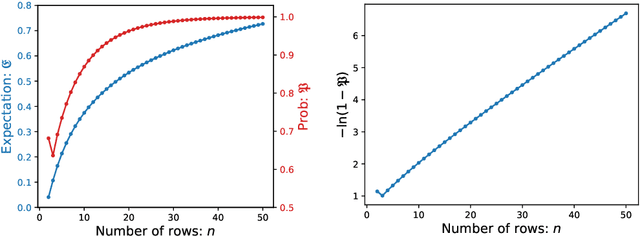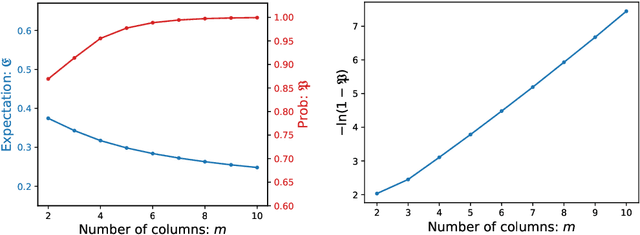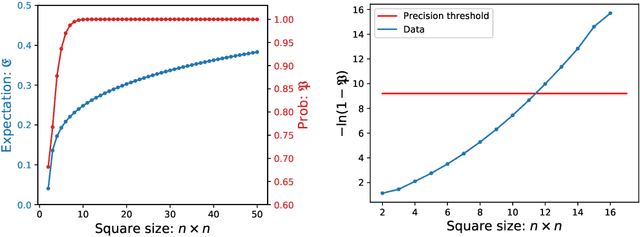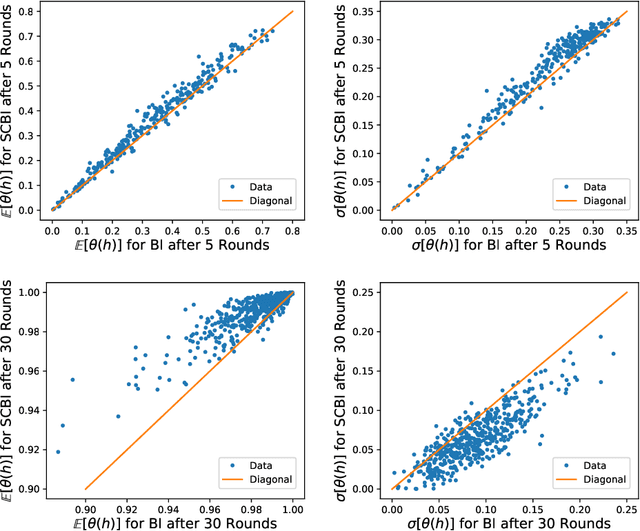Sequential Cooperative Bayesian Inference
Paper and Code
Feb 18, 2020



Cooperation is often implicitly assumed when learning from other agents. Cooperation implies that the agent selecting the data, and the agent learning from the data, have the same goal, that the learner infer the intended hypothesis. Recent models in human and machine learning have demonstrated the possibility of cooperation. We seek foundational theoretical results for cooperative inference by Bayesian agents through sequential data. We develop novel approaches analyzing consistency, rate of convergence and stability of Sequential Cooperative Bayesian Inference (SCBI). Our analysis of the effectiveness, sample efficiency and robustness show that cooperation is not only possible in specific instances but theoretically well-founded in general. We discuss implications for human-human and human-machine cooperation.
 Add to Chrome
Add to Chrome Add to Firefox
Add to Firefox Add to Edge
Add to Edge